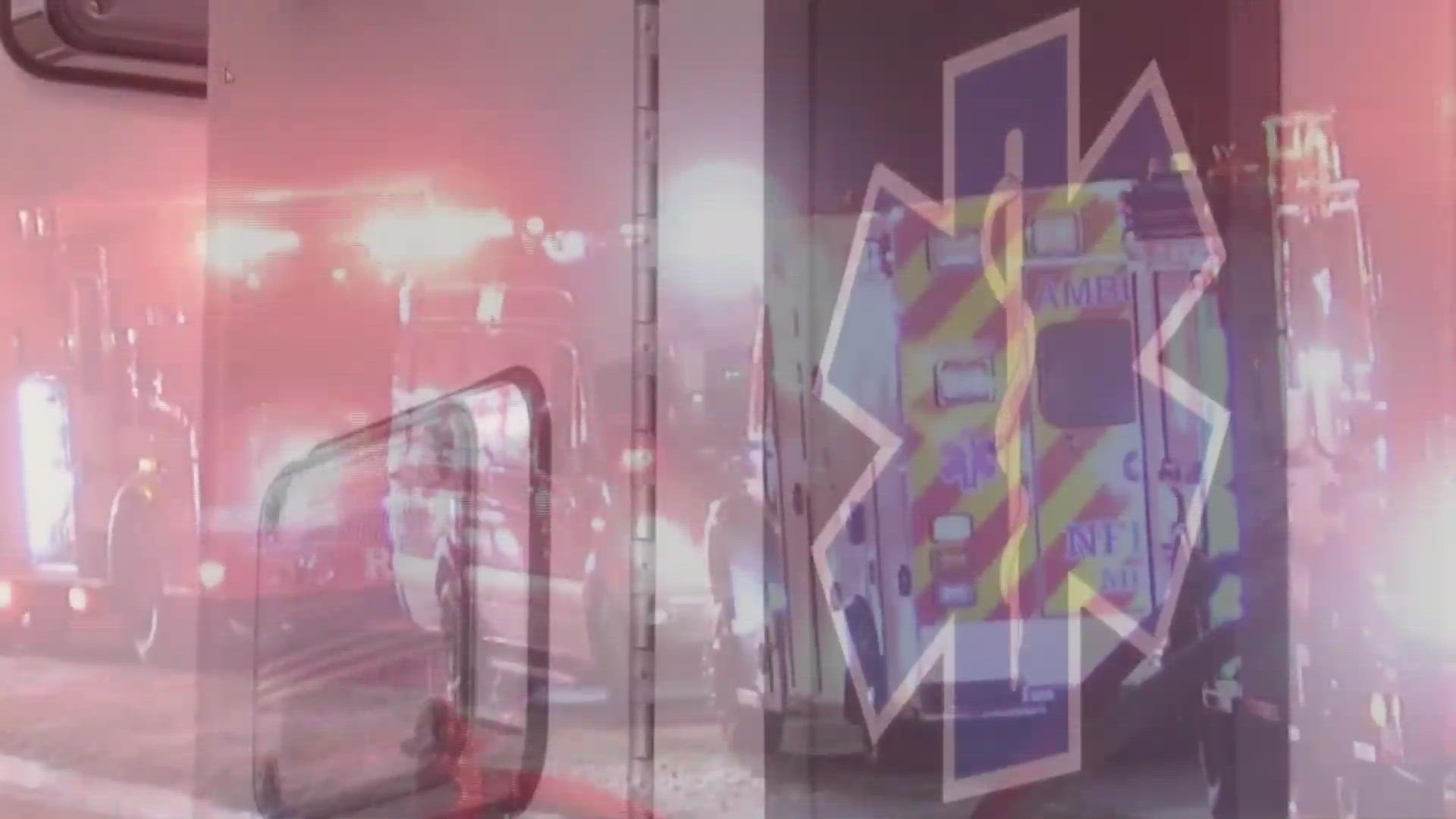ANDERSON COUNTY, Tenn. — Anderson County EMS and Claxton Volunteer Fire Department have both reported that calls for drug overdoses have tripled since the start of the pandemic, around March 2020.
In 2019, Anderson County EMS responded to about 200 overdoses. Last year those paramedics responded to 460. In just January of this year, they responded to 30.
Authorities in Chattanooga have also issued a warning about a spike in overdose deaths since the start of February. That area has seen around 10 overdose deaths in 16 days.
In Knox County, the district attorney general's office reports 20 suspected overdose deaths so far in February. That brings this year's total to 43 deaths after less than two months. Last year, the county reported 457 deaths total.
"We're starting to see those powerful drugs that are kind of getting into our community," said Nathan Sweet, the Anderson County EMS Director. “You start seeing drugs that we can't counteract with medications. And it is evolving."
He said responders are specifically seeing highly potent forms of heroin and fentanyl.
The drugs are so powerful, he said, they require more doses of Narcan — a kind of treatment designed to rapidly reverse opioid overdose.
"Narcan is not new. Overdoses are not new, but the drugs we're seeing now, where historically speaking not even a full dose of Narcan was needed. Now we're seeing giving four, five doses of Narcan before it's having an effect," Sweet said.
He said they are seeing more cases of people using methamphetamine, too. And in cases involving opioid overdoses, he said many people prefer not to go to the hospital after receiving Narcan because they may be afraid of being arrested.
He said about 30% choose not to go for follow-up treatment, and he said it’s causing more to die since a field dose of Narcan isn’t always enough to completely reverse the overdose.
“Sometimes they call us right back,” he said.
He said many people are not given drug charges if they seek help at a hospital. He said most people who do get charged usually have a large number of drugs on them or have shown they are trying to distribute them.
"They'd much rather you get help, get care, and never have to enter the jail doors," Sweet said.
Anderson County EMS also said they found a lot of people in a mental health crisis when they respond to calls. He said most people show signs of severe depression, behavioral issues and may have a history of attempting suicide.
"Overdose leads to cardiac arrest and unfortunately the success of bringing some of those people back just doesn't happen," Sweet said.
The uptick in overdose calls, he said, raises concerns for the future.
"It's not a surprise. It's unfortunate and now we're captured in a situation where we're going to see an impact of this that's going to carry on for a significant amount of time," Sweet said.
Not all overdoses are on illegal drugs he said. Some people who needed help took massive amounts of over-the-counter medications like ibuprofen trying to harm themselves.
"We're here to help people, but these people, they're dealing with stuff and we can't provide the treatment that they need," Sweet said.
They’re often able to treat the patient physically, bringing them out of an overdose. However, he said many of the people he works with while out on a call need emotional help.
Anderson County EMS is developing a non-emergency program to help people in the community who are struggling. When a person overdoses, a paramedic will follow up to provide wrap-around services, providing resources and explaining recovery options. This program, Sweet said, requires training for their paramedics. It is expected to launch late summer or early this fall.
Anyone who needs help with substance abuse issues can call or text the Tennessee Redline any day of the week at any time at 1-800-889-9789 for confidential referrals.
And anyone who may need help with thoughts of self-harm or suicide can reach out to the Tennessee Statewide Crisis Phone Line at 855-CRISIS-1 (855-274-7471). People will be connected to a crisis counselor in their area, helping them clear their heads and work through anything they might be facing.
Anyone struggling should reach out for help. Just by calling a number and talking about their emotions, they can start working towards recovery and better things.

